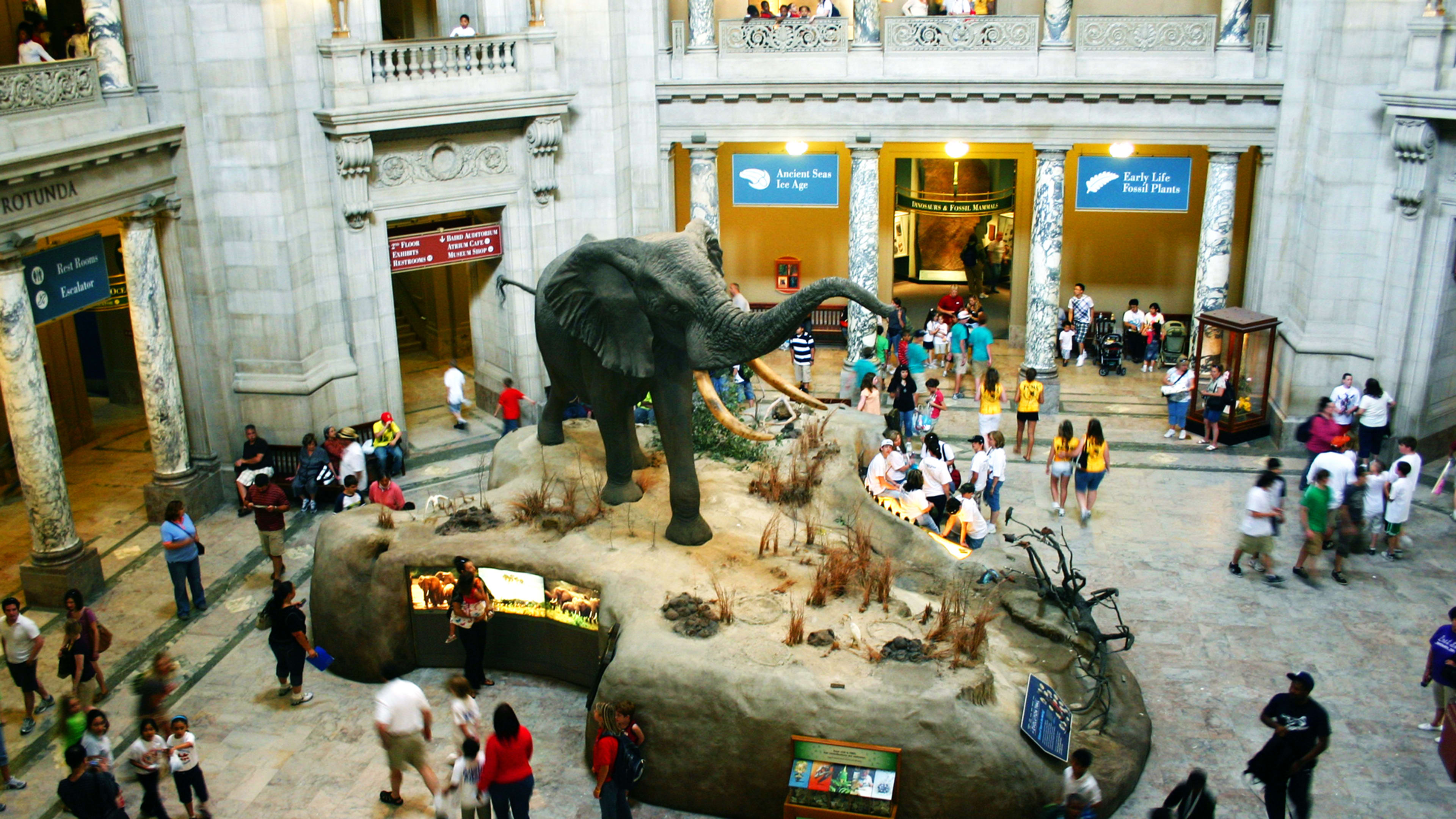It’s Day 20 of the government shutdown and, as he has since Day 1, Devon Russell is scrambling for extra income.
It’s not that Russell doesn’t have a job. A union member, he works as a security officer at the Smithsonian National Museum of Natural History, blocks from the White House where on Wednesday President Trump continued to angrily posture about the border wall and the intransigence of Senate Democrats. Under normal circumstances, Russell watches over millions of visitors who pass through the museum’s exhibition halls and its renowned collections of artifacts. Now, though, the border wall impasse has furloughed 800,000 federal employees, Russell among them. New Year’s was his last paid work day and he’s shaken, concerned about his girlfriend having to carry new financial burdens because he’s not being paid.
“I just got my last check from my job,” he tells Fast Company. “Maybe the higher-ups or the people who don’t really pay attention don’t realize that these are Americans trying to support their families.” He adds, “It’s not only people not working, it’s less food on the table, it’s not being able to buy the essentials you need in your house. It’s maybe losing your car because you don’t have the money, it’s your credit being messed up.”
Two hundred and thirty miles north, Keith Polite is similarly stressed. In his fourth year working security at the National Museum of the American Indian in Lower Manhattan, Polite says he’s worried about his future and that he might apply for unemployment benefits to help avoid dipping into his savings. “You’re walking on eggshells,” he says. “I’m not the type of person to call in sick, but I might have to use up my sick days.”
Russell says he’d hoped Trump’s Oval Office speech on Tuesday night would include a clear strategy for reopening the government. “I thought Trump’s speech might shed some light, but…” He trails off.
Russell and Polite are among 163,000 members of 32BJ SEIU, the country’s largest property service workers union. Active in nine states, it has 18,000 members in the D.C. Metropolitan Area and Baltimore. Unlike other furloughed federal workers, Russell and Polite are contract workers and aren’t guaranteed back pay once the shutdown ends.
32BJ SEIU spokeswoman Julie Karant says that as in past shutdowns (including the Obama-era battle over raising the debt ceiling and preserving funding for the Affordable Care Act), it’s hard to predict if workers will ultimately receive back pay. “It was a mixed bag in the past and totally unpredictable this time. None of our custodians got back pay when the government shut down for two-to-three weeks in 2013.”
One additional burden for furloughed workers worried about making tuition, car and mortgage payments? According to the Department of Labor, those who receive back pay when the government shutdown finally ends must repay the government the unemployment benefits that got them through it.
By some estimates, biweekly paychecks worth $2 billion are being withheld from both furloughed workers and “essential” employees working without pay. Seeking to provide some relief, this week Sen. Brian Schatz (D-HI), Rep Derek Kilmer (D-Wash) and other lawmakers–all Democrats–introduced the Federal Employee Civil Relief Act. Modeled on similar legislation designed to protect members of the military, it seeks protections for federal employees and their families during the shutdown.
“While the President and Senate Republicans struggle to get their act together, real people are suffering,” said Schatz in a statement. “Right now, thousands of federal workers and their families are struggling to pay rent and make ends meet. It’s absolutely unacceptable. Our bill will protect federal workers and make sure they aren’t harmed because of a political stunt.”
Meanwhile, workers with the Transportation Security Administration (TSA) who perform a crucial security function to protect the country, have been working without pay since the first day of the shutdown. According to the American Federation of Government Employees, which represents 700,000 federal and D.C. government workers, about 44,000 TSA workers in total service and screen 851 million passengers a year. Though legally prohibited from striking, there have been multiple reports in the last week of shutdown-related sickouts at the nation’s airports.
The president says that he’d keep the government closed for “months or even years” to ensure funding for his wall. More recently, he suggested a willingness to declare a national emergency to get it done. Critics say both strategies reveal an indifference to working Americans like Devon Russell and Keith Polite.
“Basically, Trump doesn’t care about anybody” says Russell, “not even the people who voted for him and support him. Those are the same people who are losing their jobs as well at this point. In order for this to end, people have to pick up the phone. Whatever it takes to try to get this thing done and over with.”
Recognize your brand’s excellence by applying to this year’s Brands That Matter Awards before the early-rate deadline, May 3.
